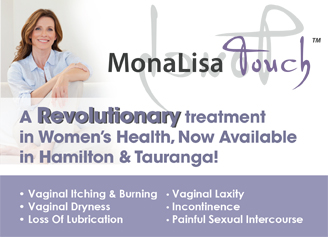Hormone Therapy: WHI study Follow up reveals no change in Mortality after 18-Year
October 3, 2017, no responses, by: Women Health Center, Tags:
The WHI study changed the world for peri and post menopausal women and influenced the way a whole generation of us prescribed Hormone replacement therapy.
“When considering the health outcomes given by the original WHI trials a major point we often overlooked is that the trial was neither designed to determine the advantages and risks of HRT for proper management of menopausal symptoms. In comparison to this both the trials were intended to evaluate the advantages and risks of HRT to avoid the chronic diseases such as cancers and cardiovascular disease. However, when it became apparent that no improvement was seen in the cardiovascular results the trials were stopped.”
According to the most recent analysis of the study conducted by the Women’s Health Initiative (WHI) and reported in the JAMA, postmenopausal women who have undergone hormone therapy (HT) did not show an increased mortality risk of cancer, or all causes and cardiovascular diseases (CVD).
The research was performed by the same researchers that were included in the team, which conducted the original trials, including the estrogen with progestin trial which was published in 2002 and the estrogen-only trial which was published in 2004.
According the Garnet Anderson, PhD, co-principal investigator of the first studies and co-author of the recently conducted WHI study, the take-home message construed from the new study is very consistent as compared to the previous one. She also concluded that when they analyzed the all-cause mortality after the conclusion of the original studies no differences were observed. Also, after analyzing the recently reported new data no difference has been observed.
A follow up was also conducted by the researchers on the women who participated in both the WHI trials of up to 18 years. There were 16,608 females with a uterus who were selected randomly to receive estrogen and progestin (conjugated equine estrogens at 0.625 mg per day and medroxyprogesterone acetate at 2.5 mg per day) or a placebo and 10,739 women who have experienced hysterectomy were randomly selected and given only estrogen or a placebo.
The participants included 80.6% white women aged 50 to 79 years and who were selected from 40 clinical centers of US between 1993 and 1998. There were 5310 women who were taking only estrogen while 5429 women were taking placebo for a median 7.2 years. There were 8506 women were taking estrogen plus progestin and also undergoing Hormone Therapy (HT) and the participants receiving placebo for an average 5.6 years were 8102. However, when the studies ended less than 4% of the participants used any HT later.
The studies conducted on updating mortality analysis by the researches assigned by JoAnn Manson, DrPh, MD, chief of the Division of Preventive Medicine at Brigham and Women’s Hospital in Boston and a professor of medicine at Harvard Medical School accumulated data for over 98% of the 27,347 particiapnts who were originally enrolled in the studies. The average follow-up time was recorded to be 18 years. During this time 7489 deaths were reported through December 31, 2014, including 1088 deaths during the intervention and 6401 deaths since the trials ended.
The results for all cause mortality were found to be same in all the groups of participants: 27.6Z% across the combined placebo groups and 27.1% in combined Hormone Therapy groups. There was no significant change observed in the group of women taking only estrogen (95% confidence interval [CI] 0.88 – 1.01; hazard ratio [HR], 0.94) or taking estrogen plus progestin (HR, 1.02; 95% CI, 0.96 – 1.08) in contrast to placebo.
Likewise, no statistically significant distinction was noted between the groups: total cancer mortality (HR, 1.03; 95% CI, 0.95 – 1.12) and pooled cardiovascular mortality (HR, 1.00; 95% CI, 0.92 – 1.08). The participants in the HT group showed complete risk of combined cardiovascular mortality in the placebo groups (9.0%) and (8.9%) in the HT groups. Whereas the risk for cancer mortality was reported as (8.0%) in the placebo groups and (8.2%) in the HT groups.
According to Dr Manson there is surprisingly no increase has been seen in cancer mortality despite of all the given concerns about cancer and hormones. Dr Manson stated that there is a very complicated relationship between the HT and cancer. It causes great risk of some cancers like breast cancer and reduce the risk of other cancers like endometrial and uterine which results a neutral effect on the risk of cancer mortality.
The estrogen plus progestin group showed a rising trend towards the increase in risk of specific mortality for breast cancer comparative to placebo (HR, 1.44; 95% CI, 0.97 – 2.15; P = .07). While the women in the estrogen only group showed a significant decrease in the in the risk for breast cancer (HR, 0.55; 95% CI, 0.33 – 0.92; P = .02).
“When considering the health outcomes given by the original WHI trials a major point we often overlooked is that the trial was neither designed to determine the advantages and risks of HRT for proper management of menopausal symptoms. In comparison to this both the trials were intended to evaluate the advantages and risks of HRT to avoid the chronic diseases such as cancers and cardiovascular disease. However, when it became apparent that no improvement was seen in the cardiovascular results the trials were stopped.”
Additionally, Dr Manson stated that before taking any medication for a long time and for the prevention of disease every patient would like to see the proof that it reduces the mortality. However, the recent studies do not support the use of hormone therapies to avoid cardiovascular disease or other chronic diseases. However, this conclusion is different from the decision about using the Hormone Therapy in order to treat the symptoms of menopause.
The major complication is that the women who were looking to get the treatment of menopausal symptoms misinterpreted and misunderstood the original findings of the WHI. The WHI outcomes were not designed to be inferred to the women of age between 40 years to 50 years and who want a HT medication for the treatment of upsetting symptoms like hot flushes and many more symptoms which disrupt the quality of sleep and life. Dr Manson who is also a former president of the North American Menopause Society concluded that the current mortality outcomes provide reassurance to the patients as well as their clinicians that Hormone therapy is perfect for the management of menopause symptoms as it have a positive risk–advantage profile.
But inspite of that study doesn’t necessarily show clear and easy solution for all women. The women with specific risk factors like a history of blood clots or a high-risk profile for breast cancer may also observe that the risks of HT, may even exceed the advantages for them even in the case of women with menopausal symptoms. At the same time, HT also increases the risk of breast cancer and stroke and reduces the risk of endometrial for uterine cancer, endometrial and hip fractures.
Dr Anderson stated that there is no finding that can provide an easy answer to that question for every person, but this analysis gives the best data which support those discussions very well. He further continued that, of course mortality is an irresistible reason to change something, but the other events are also important at the same time. For example, having a breast cancer can be really disfiguring and have a bad effect on the mortality and having a stroke at the age of 60 can highly affect the quality-of-life in a negative way even if shows no impact on your mortality.
The women and clinicians should also know that mortality from any cause is neither increased or reduced with the use of HT. However, the key problem is that you can’t focus on any single solution alone. As a result, the hormone therapy has a very complicated effect on the health of women. This complexity was highlighted in a following editorial created by Melissa McNeil, MPH, MD, from the University of Pittsburgh in Pennsylvania.
Dr McNeil further stated that even though the long-term information on total and cause-specific cumulative mortality of accumulated data for hormone users as compared to nonusers is reassuring as well as compelling. However, the most challenging discussions involve the problem of whether there is any distinction in overall mortality by menopausal condition and age at the time of starting of hormone therapy.
The researchers in the team of Dr Manson calculated the mortality risk classified by the women’s age in which she started taking HT and had originally found that during the intervention that females who started using HT between 50 years to 59 years are at a lower exposure (29%) to the risk for death as compared to those who started using HT at the age between 70 years to 79 years (HR, 0.61; 95% CI, 0.43 – 0.87). However, long-term follow-up debilitated the decrement to such an extent that it lost the statistical significance (HR, 0.87; 95% CI, 0.76 – 1.00).
McNeil further stated that this reduction, however remains suggestive in mortality rather than definitive. There were various other discussions which included the optimal duration of HT and whether there are any additional advantages of using hormone therapy early like within two years of the menopausal transition.
Categories
- Endometriosis (3)
- Female Sexual dysfunction (1)
- General (7)
- Incontinence (1)
- Infertility (2)
- Interstitial Cystitis (1)
- Menopause (5)
- Overactive Bladder (1)
- Polycystic Ovaries (1)
- Surgical (2)
Archives
- October 2017 (2)
- March 2017 (1)
- March 2016 (1)
- February 2016 (1)
- November 2015 (3)
- October 2015 (5)
- September 2015 (1)
- August 2015 (2)
- July 2015 (3)
- March 2015 (2)
- January 2015 (1)
Recent Posts
- How Accurate is biopsy sampling in Endometrial Cancer?
- Hormone Therapy: WHI study Follow up reveals no change in Mortality after 18-Year
- How to manage Interstitial Cystitis/Bladder Pain Syndrome?
- Potential Benefits of Diagnosis and Treatment on Health Outcomes Among Elderly People With Symptoms of Overactive Bladder
- The Zika Virus summarised



Leave a Reply